Highlighting iconic love stories, 'Couples in the Bible' delves into faith, loyalty, and love, revealing timeless lessons for modern relationships.

Couples in the Bible
Imagine swiping right on Adam and Eve, the original power couple, whose love story set the stage for humanity's complex relationship journey.
As you explore the narratives of Abraham and Sarah, Isaac and Rebekah, Jacob and Rachel, and Ruth and Boaz, you'll uncover timeless themes of faith, providence, endurance, and loyalty that still resonate in today's relationships.
Each couple's story offers unique insights into love, partnership, and divine intervention, inviting you to reflect on how these ancient dynamics mirror modern-day relationship challenges.
You'll find yourself intrigued by how much—or how little—couples have changed over millennia, sparking a deeper understanding of the biblical perspective on love and commitment.
Key Takeaways
- Biblical couples teach the importance of faith, loyalty, and endurance in relationships.
- Divine intervention often plays a crucial role in the formation and sustenance of biblical relationships.
- Relationships in the Bible highlight ethical and moral lessons that are relevant across generations.
- Love, commitment, and trust in God's timing are central themes in the stories of couples in the Bible.
Adam and Eve: Beginnings

In the Genesis narrative, Adam and Eve emerge as the inaugural couple, setting the foundational dynamics for human relationships and societal norms. Their story, deeply embedded within the tapestry of the Garden of Eden, unfolds a complex interplay of innocence, temptation, and the consequential fall from grace, encapsulating the doctrine of Original Sin. You'll find that their actions within this paradisiacal setting not only introduce the concept of disobedience to divine command but also set forth a ripple effect, influencing the core of human ethics and morality.
As you delve deeper, it becomes apparent how the narrative of Adam and Eve in the Garden of Eden serves as a critical juncture in understanding human nature and the inherent predisposition towards transgression. Their choice to eat from the Tree of Knowledge, prompted by the serpent's persuasion, marks the genesis of Original Sin, fundamentally altering their existence and, by extension, the course of humanity. This pivotal moment highlights the transition from innocence to awareness, underscoring the weight of free will and its repercussions.
Thus, their story isn't merely about the inception of sin but also about the emergence of human consciousness and the inevitable complexities that accompany it.
Abraham and Sarah: Faith

Abraham and Sarah's narrative unfolds a profound exploration of faith, as they navigate the complexities of divine promises and human doubts. At the heart of their story lies the divine promise of a son, a pledge that tests the bounds of believability due to their significant age difference. This element not only highlights their physical limitations but also sets the stage for an unparalleled demonstration of faith.
You'll notice that their journey is marked by moments of uncertainty and questioning, reflecting a deeply human response to seemingly impossible circumstances. Despite the age difference, which in their culture and time could have been a reason for despair, Abraham and Sarah's faith in the divine promise serves as a cornerstone for their actions and decisions. This faith isn't static; it evolves, falters, and ultimately solidifies, offering a rich tapestry for understanding the dynamics of trust in something beyond the visible and tangible.
Their story teaches you about the endurance required to hold onto faith amidst trials. It's a scholarly reminder that faith, especially when intertwined with divine promises, often demands patience and resilience, transcending mere belief to embody a lived experience of trust against all odds.
Isaac and Rebekah: Providence
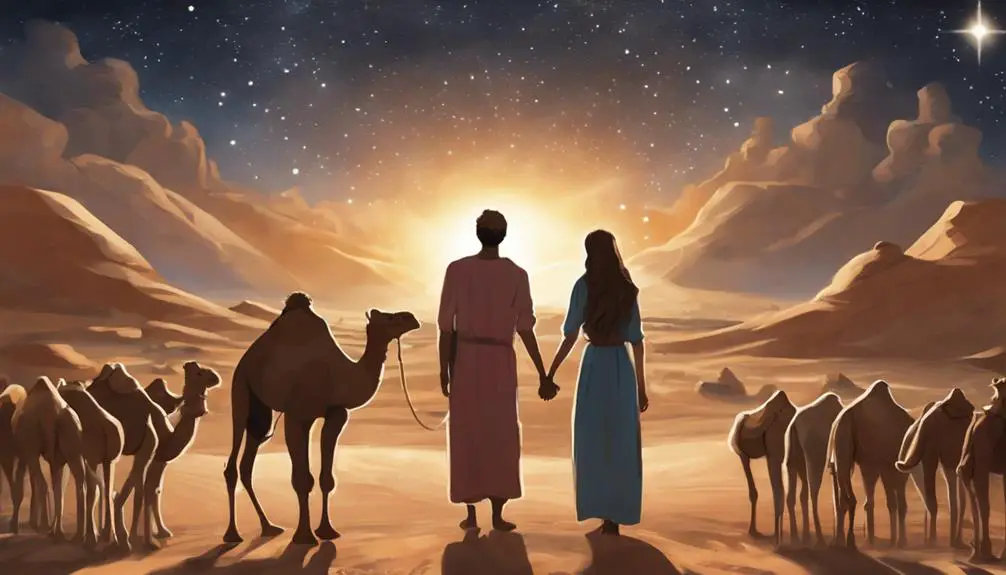
How does the story of Isaac and Rebekah exemplify divine providence in the unfolding narrative of biblical couples?
This narrative is a fascinating study in divine matchmaking and the intricate family dynamics that the Bible portrays. The orchestration of Isaac and Rebekah's meeting through a servant's prayerful journey demonstrates a profound belief in divine intervention in personal relationships.
- *Divine matchmaking* is evident when Abraham's servant prays for a sign to find the right wife for Isaac, and Rebekah appears, fulfilling the specific conditions set forth in his prayer.
- The *immediate response* from Rebekah and her family to the servant's proposal underscores the recognition of God's hand at work in their lives.
- *Family dynamics* play a crucial role, as the servant recounts the miraculous circumstances leading him to Rebekah, convincing her family of God's will.
- The *peaceful succession* of blessings from Abraham to Isaac, facilitated through Rebekah, showcases providence in preserving lineage and faith.
- *Trust in God's timing* is illustrated as Isaac marries Rebekah 20 years before their twins are born, highlighting patience and faith in God's plan.
Analyzing Isaac and Rebekah's story, one sees the delicate balance between human action and divine guidance, offering a profound insight into the role of providence in relationships.
Jacob and Rachel: Endurance
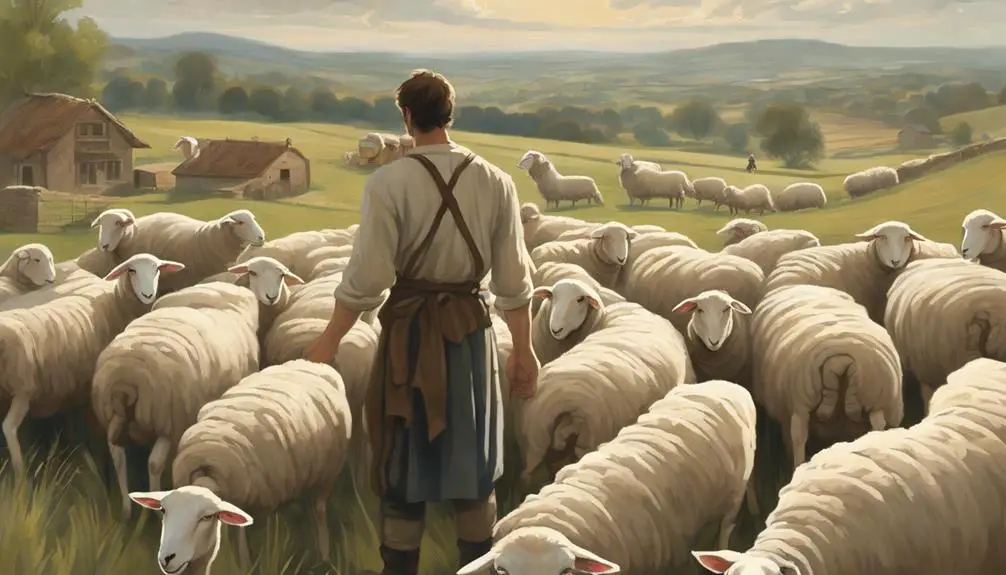
Delving into the narrative of Jacob and Rachel, one observes a poignant testament to the endurance of love amidst trials and tribulations. Their story, rich in emotional depth and complexity, unfolds in the Book of Genesis, offering a vivid illustration of love's persistence in the face of formidable familial obstacles. Jacob's unwavering determination to marry Rachel, despite her father Laban's deceitful tactics, underscores the resilience of their bond.
Laban's imposition of a seven-year labor condition for Jacob's marriage to Rachel, only to deceive him by substituting Leah, Rachel's sister, on the wedding night, exemplifies the external challenges their love endured. Yet, Jacob's willingness to labor an additional seven years for Rachel not only highlights his profound commitment but also serves as a testament to the enduring nature of true love.
Analyzing their narrative, it's evident that Jacob and Rachel's relationship was significantly shaped by the trials they faced together. These challenges, rather than diminishing their bond, only fortified their commitment to one another. Their story, emblematic of love's ability to persevere through adversity, offers a timeless reflection on the power of dedication and the indomitable spirit of love amidst life's inevitable hurdles.
Ruth and Boaz: Loyalty
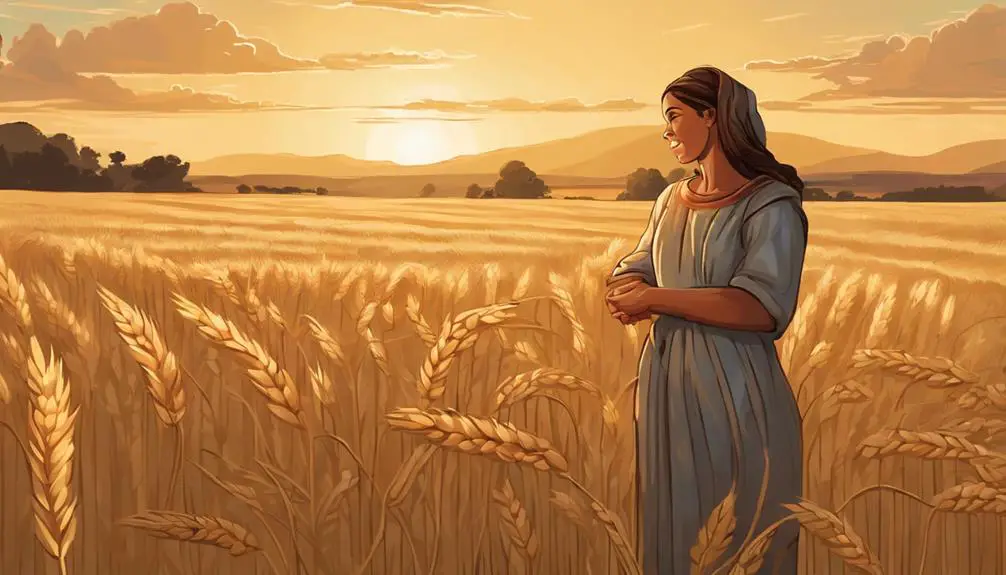
While Jacob and Rachel's narrative exemplifies love's endurance, the story of Ruth and Boaz in the Book of Ruth offers a profound exploration of unwavering loyalty.
Ruth, a Moabite widow, pledges allegiance to Naomi, her Israelite mother-in-law, demonstrating a loyalty that transcends cultural and national boundaries. Boaz, a relative of Naomi, embodies harvest generosity, extending protection and provision to Ruth. Their story culminates in a matchmaking kinship, where loyalty and kindness are rewarded with love and legacy.
The tale of Ruth and Boaz teaches you:
- Loyalty can bridge cultural divides, showcasing how Ruth's commitment to Naomi set the stage for her integration into a new community.
- Harvest generosity is a form of divine provision, illustrating how Boaz's kindness towards Ruth reflects a broader principle of care and provision.
- Matchmaking kinship underscores the importance of family and community in guiding individuals towards meaningful relationships.
- Commitment to others can lead to unexpected blessings, as seen in Ruth's journey from widowhood to becoming the great-grandmother of King David.
- True loyalty is action-oriented, evidenced by Ruth's active choice to stay with Naomi and Boaz's proactive steps to marry Ruth, ensuring her protection and provision.
This narrative deeply explores the multifaceted nature of loyalty, revealing its power to foster community, kindness, and lasting love.
Frequently Asked Questions
How Did the Dynamics of Power and Decision-Making Vary Between These Biblical Couples, and What Implications Does This Have for Understanding Gender Roles Within These Stories?
When analyzing power dynamics and decision-making, you'll notice a varied gender hierarchy and levels of decision autonomy. These aspects critically shape understandings of gender roles.
In these narratives, who holds power and who makes decisions isn't uniform, highlighting a complex interaction between gender and authority. This complexity suggests that simplistic interpretations of gender roles might miss the nuanced ways in which power and autonomy are negotiated and manifested within these stories.
In What Ways Did Cultural and Societal Norms of Their Times Influence the Relationships and Actions of These Biblical Couples, Beyond the Immediate Context of Their Stories?
You're exploring how cultural and societal norms shaped behaviors and decisions beyond their immediate stories. Analyzing historical accuracy and archaeological evidence reveals the depth of influence these factors had.
It's not just about individual actions but how deeply ingrained norms dictated gender roles, power dynamics, and societal expectations. This approach necessitates a detailed, scholarly examination, understanding that cultural context isn't a backdrop but a driving force behind these narratives.
How Have Interpretations of These Couples' Stories Evolved in Different Religious Traditions, and What Impact Does This Have on Contemporary Views of Marriage and Partnership?
When you explore how stories evolve across religious traditions, you'll notice translation variations and interfaith perspectives significantly shape contemporary views on marriage and partnership. These shifts in interpretation impact modern discussions on relationships, highlighting how historical context and evolving societal norms influence our understanding.
The analysis of these narratives, devoid of their original biblical context, reveals the complex ways in which cultural perceptions of partnership have transformed over time.
Can We Find Examples of Conflict Resolution Within These Relationships, and What Lessons Can Modern Couples Learn From Them?
When exploring conflict resolution in historical narratives, you'll find that forgiveness techniques and communication strategies play pivotal roles. By analyzing these elements, you can unlock valuable lessons for modern relationships.
Effective communication fosters understanding and empathy, while forgiveness allows for healing and growth. Therefore, applying these ancient strategies in today's context can significantly enhance partnership dynamics, emphasizing the importance of both expressing oneself clearly and listening with an open heart.
How Do These Biblical Stories Address the Concept of Love Outside of Marriage, and What Can They Teach Us About the Nature of Love and Commitment?
Exploring love beyond marital confines, you'll find stories highlighting divine interventions and spiritual compatibility. These narratives teach that love's essence transcends conventional boundaries, emphasizing a profound, spiritual connection.
Conclusion
In analyzing the relationships of biblical couples, it's evident that their stories offer profound insights into the complexities of human connections, underscored by themes such as faith, loyalty, and endurance.
From Adam and Eve's foundational narrative to Ruth and Boaz's exemplification of loyalty, these couples reflect the multifaceted nature of love and partnership.
Their experiences, deeply entrenched in providential designs, not only illuminate the spiritual dimensions of relationships but also the enduring human struggle to navigate them with grace and purpose.

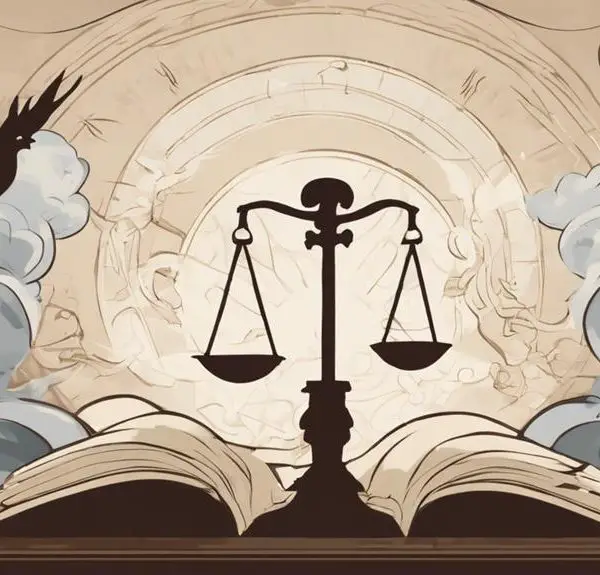
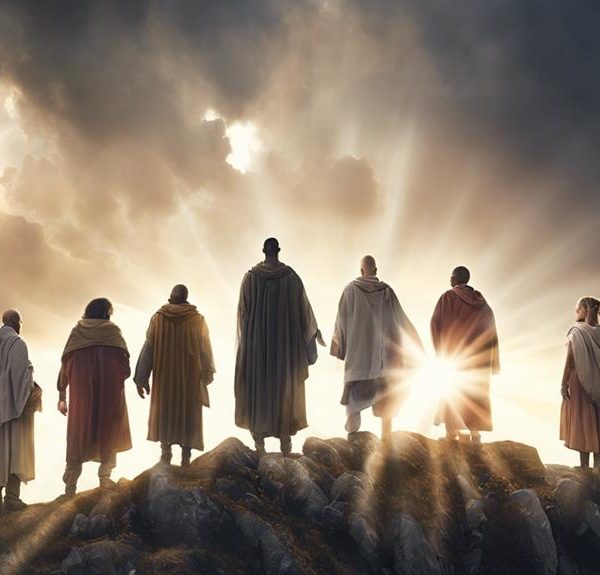
Sign up